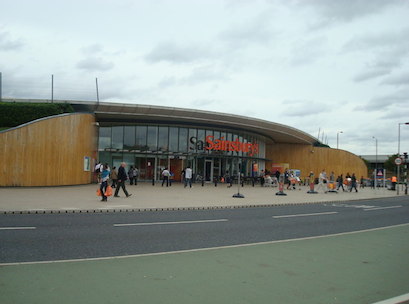 British retail giants Sainsbury’s and Walmart-owned Asda have agreed on a deal that will combine both businesses, a move that could potentially dethrone Tesco as the largest food and grocery retailer in the UK.
British retail giants Sainsbury’s and Walmart-owned Asda have agreed on a deal that will combine both businesses, a move that could potentially dethrone Tesco as the largest food and grocery retailer in the UK.
The merger, which was confirmed to be nearing completion last weekend, will require approval from the UK’s competition watchdog, the Competition and Markets Authority, which is expected to heavily scrutinise the deal.
If approved the combined business would account for more than £1 in every £3 spent on groceries in the UK, outstripping Tesco’s 27.6 per cent share of the market, according to the latest Kanstar numbers.
Announcing the deal on Monday morning in the UK, Sainsbury’s said the combined business would generate more than £51 million in annual revenue, while the merger would be expected to generate up to £500 million (AUD$909m) in earnings synergies, primarily related to buying, property and operational costs.
“This is a transformational opportunity to create a new force in UK retail, which will be more competitive and give customers more of what they want,” Sainsbury’s chief executive Mike Coupe said.
Under the £10 billion deal more than 2,800 Sainsbury’s, Asda and Argos stores alongside associated e-commerce assets will fall under a single business, but individual brands would be maintained.
Prices to drop
Sainsbury’s said the move will enable it to spend millions investing in dropping prices on high volume products by around 10 per cent, while also enabling the creation of additional digital shopping channels.
Higher volume buying, operational efficiencies in Asda and Argos stores as well as a closer relationship with US-based Walmart were also singled out as benefits.
“The proposal will bring together two of the most experienced and talented management teams in retail at a time when the industry is undergoing rapid change,” Sainsbury’s chairman David Tyler said.
The combined business would be chaired by Tyler and led by Coupe, while Asda will continue to be run from Leeds with its own chief executive who would join a group operating board for the combined business.
The “best leaders” from both Sainsbury’s and Asda will lead the combined company, Sainsbury’s said.
Sainsbury’s would be the dominate partner in the merged business while Walmart, which has been trying to crack the Uk market with Asda for years, will retain a 42 per cent stake in the combined business and receive £2.97 billion in cash.
“This proposed merger represents a unique and bold opportunity, consistent with our strategy of looking for new ways to drive international growth,” Walmart’s president and chief executive of International, Judith McKenna said.
“We believe this combination will create a dynamic new retail player better positioned for even more success … we look forward to working closely with Sainsbury’s to deliver the benefits of the combined business.”
Asda booked a 2.6 per cent increase in sales to £22.2 billion for the financial year ended 31 December 2017, with positive like-for-like growth.
Operating profits were approximately £720 million, down 14.7 per cent on margin pressures born from price investment.
Sainsbury’s profit before tax down 18.6 per cent to £409 million in the 52 weeks to 10 March, according to company financials released yesterday.
Sales were up 9 per cent to £31.7 billion, while like-for-like sales were up 1.3 per cent.
A defensive move
GlobalData’s director of UK research Patrick O’Brien characterised the merger as a defensive move designed to protect both businesses from the impact that German discounters Aldi and Lidl are having on the UK grocery market.
“Overall, we see this as a defensive merger, as a way of halting the long term decline in profit margins both have suffered. Aldi and Lidl continue to take market share, and Asda and Sainsbury’s may believe that by combining to become the largest UK food retailer, it can battle more effectively against them with greater buying scale,” he said.
But the competition regulator is unlikely to approve the deal in its current form, O’Brien said.
‘While there are no plans to close any stores at this time, regulators will be looking to see how many Asda stores are in close proximity to Sainsbury’s stores,” he said.
GlobalData believes that the combined business would need to dispose of at least 75 stores to convince regulators to approve the deal, which would hand market share back to Tesco.
In a statement released on Monday the UK’ Competition and Markets Authority said that an investigation into the merger could take longer than six months.
“The CMA would assess whether the deal could reduce competition and choice for shoppers,” the regulator said in a statement. “After this first phase, the merger could be cleared or, if a potential reduction in competition is identified it would be referred for an in-depth Phase 2 investigation lasting up to 24 weeks.”
Sainsbury’s shareholders will also have to approve the deal.
UPDATED 1/5/2018 10:00 AEST






